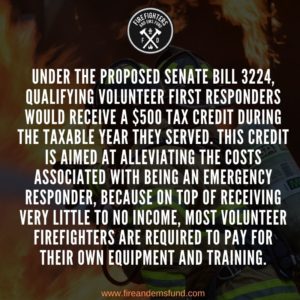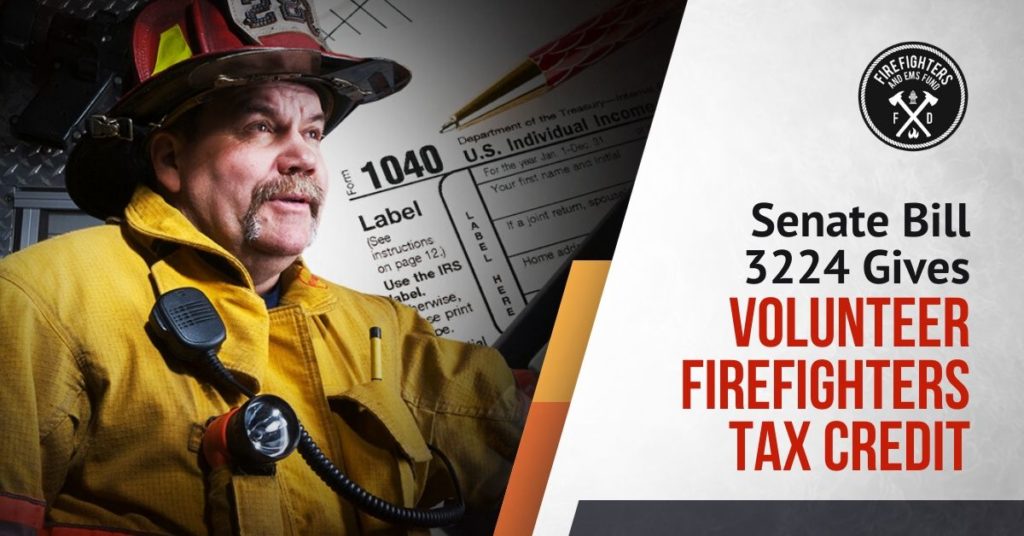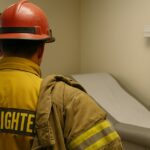Senators in Illinois are looking to give back to volunteer firefighters and EMS workers. State Senators Jason Barickman (R-Bloomington) and Ram Villivalam (D-Chicago) introduced Senate Bill 3224 in February, legislation that calls for an amendment to the Illinois Income Tax Act. Under the proposed legislation, qualifying volunteer first responders would receive a $500 tax credit during the taxable year they served. This credit is aimed at alleviating the costs associated with being an emergency responder, because on top of receiving very little to no income, most volunteer firefighters are required to pay for their own equipment and training.
“Volunteer firefighters and EMTs put their lives on the line for us with little or no pay of any kind, even though they have to pay equipment and training costs,” said Sen. Barickman. “This legislation will help offset some of their costs and hopefully make it easier to do their job, which is to protect all of us.” The Senators filed the bill intending for the $500 tax credit to pay for expenses such as fire equipment, training licensure, and even insurance. “There is concern about state and fire marshal mandates that are putting more of a burden on firefighters and EMTs. It results in some who decide not to be a volunteer,” Barickman said. The hope is that by reducing the financial burden of volunteering, local fire departments can boost recruitment and bolster efforts in protecting the public. “They put their lives on the line for the public. And so this to me is just a small step in the right direction to recognize that with all of those burdens that have been placed on them, being forced to contribute out of their own pocket to be able to do this work in our communities.” And while the bill would certainly cover some costs, it wouldn’t pay for the full out-of-pocket expenses of most volunteer fighters.

While training requirements for volunteer firefighters vary by department, locality, and state, all are required to complete some level of rigorous training in order to serve. Some departments only require volunteers to pursue foundational training given that enough career firefighters are on the force to oversee them; smaller departments often ask that volunteers complete additional training so they can operate more autonomously. In Illinois, where the proposed legislation would take effect, Grant Park Deputy Fire Chief Matt Shronts said it costs $500 for an individual to attend the most basic level of training at the Fire Academy. Further training can cost anywhere from $500 to $2,000. EMS programs are now college-level courses, where the average cost per credit hour is $594. “Sixteen years ago, when I was going for my paramedics certification, there were grants and scholarships. That is no longer there,” Shronts said. On top of the training, many volunteer firefighters are forced to replace or update equipment like gloves, flashlights, and even boots when it’s needed, which many departments cannot afford, or can only afford PPE for career firefighters.
The bill is introduced at a time when many Illinois fire stations are already battling dwindling staffing and funding. Buncombe, IL Fire Chief Jason Grant told The Southern that “It’s hard to be a non-paid department and get anybody that wants to participate,” Grant said. “Then, if we do get people, we don’t have the proper equipment to give them for them to be safe.” Buncombre Village is not alone. Many small town fire chiefs in Illinois are fighting to recruit and retain volunteers, something they attribute to the low pay, high-risk nature of work, and the expensive and time-consuming training required to keep up with stringent state regulations. And as we continue to battle the Coronavirus pandemic, calls to fire and EMS workers only continue to increase (70% of all calls to fire departments are for medical aid).
Illinois is in desperate need of volunteer firefighters. Deputy Fire Chief Shronts sees Senate Bill 3224 as a step in the right direction, but says there is more that needs to be done to help ease the economic burden, as well as keep men and women in the departments. “Any incentive that can be offered to serve is a right thing,” Bruno said.
Call your state and local representatives to advocate for increased awareness on lack of funding for fire departments, an issue that is not isolated to Illinois.








